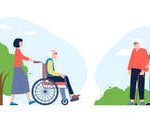Introduction to the NHS and Rehabilitation Context
The National Health Service (NHS) stands as a cornerstone of healthcare provision in the United Kingdom, offering comprehensive medical and mental health services free at the point of use. Established on principles of equality and accessibility, the NHS is uniquely positioned to support individuals throughout their rehabilitation journeys, whether recovering from physical injury, illness, or managing long-term conditions. Rehabilitation is not solely about physical recovery; it encompasses the holistic well-being of each person, recognising that mental health plays a crucial role in achieving sustainable outcomes. In this context, understanding how the NHS integrates mental health support into rehabilitation is vital. Many people find that emotional challenges arise during periods of physical recovery—feelings of frustration, anxiety, or isolation can all become significant barriers. The NHS acknowledges these realities and offers pathways to address them alongside physical care. Setting the stage for this discussion, it becomes clear that prioritising mental health within rehabilitation is not just beneficial but essential for complete and lasting recovery.
Understanding Mental Health Needs in Rehabilitation
During the rehabilitation process, addressing mental health is just as crucial as managing physical recovery. Many individuals undergoing rehab within the NHS face a range of psychological and emotional challenges that can impact their progress. Recognising and understanding these common mental health needs is a key step toward holistic recovery.
Common Mental Health Challenges During Rehabilitation
People in rehabilitation often contend with several overlapping mental health concerns. These issues may stem from the trauma of injury or illness, changes in daily routine, and uncertainty about the future. Below is an overview of typical challenges:
| Mental Health Challenge | Description |
|---|---|
| Anxiety | Feelings of worry, fear, or panic about health outcomes, abilities, or returning to normal life. |
| Depression | Persistent sadness, loss of interest, and a sense of hopelessness that can undermine motivation for rehabilitation. |
| Adjustment Disorders | Difficulties coping with major life changes brought by illness or injury. |
| Post-Traumatic Stress | Flashbacks, nightmares, or heightened stress responses following a traumatic event leading to rehab. |
| Social Isolation | Withdrawal from friends, family, or community due to mobility limitations or emotional distress. |
Why Addressing Mental Health Is Essential for Recovery
Mental wellbeing directly influences a person’s capacity to engage with and benefit from physical rehabilitation. When psychological needs are neglected, recovery can stall or regress. Evidence shows that integrated support—combining physical and mental health care—leads to better outcomes. The NHS recognises this link and aims to provide comprehensive support tailored to individual needs.
Impact on Overall Recovery
- Motivation: Good mental health supports the drive needed for consistent participation in rehab programmes.
- Coping Skills: Emotional resilience helps individuals adapt to setbacks and persist through challenges.
- Quality of Life: Addressing mental health improves social relationships and day-to-day satisfaction during recovery.
- Long-Term Outcomes: Early intervention for mental health concerns reduces the risk of chronic psychological issues post-rehabilitation.
Towards Holistic Care in the NHS
The NHS approach increasingly emphasises treating both mind and body as part of the rehabilitation journey. Understanding your own mental health needs—and knowing you are entitled to support—is fundamental as you navigate available services during your recovery.

3. First Steps: Speaking to Your GP
When you begin seeking mental health support during your rehabilitation journey, your General Practitioner (GP) is often your first point of contact within the NHS system. GPs in the UK are trained to recognise a wide range of mental health issues and play a key role in coordinating care. Booking an appointment with your GP may feel daunting, but it is a crucial step towards accessing further support. During your consultation, be open about how you are feeling and any symptoms you are experiencing, whether emotional or physical. Your GP will listen carefully, ask relevant questions, and work with you to understand your needs.
Your GP can provide initial advice, recommend self-help strategies, or prescribe medication if appropriate. They may also refer you for talking therapies such as cognitive behavioural therapy (CBT) through local NHS services, often via the Improving Access to Psychological Therapies (IAPT) programme. This process is designed to be collaborative; you have the right to discuss treatment options and express any preferences you may have. Your GP acts as the gateway to more specialised support—if your needs are complex or require specialist intervention, they can refer you to secondary mental health services for assessment by a community mental health team (CMHT).
It’s important to understand that the NHS pathway for mental health care is structured but flexible enough to accommodate individual circumstances. Your GP will help guide you through this pathway, ensuring that support is tailored to your rehabilitation process and personal recovery goals. If at any stage you feel unsure about the next steps or need clarification on what has been discussed, don’t hesitate to ask for more information. Open communication with your GP helps ensure that you receive timely and appropriate care as part of your wider rehabilitation journey.
4. NHS Mental Health Services Available During Rehabilitation
When navigating the NHS during rehabilitation, understanding the range of mental health services on offer can make a significant difference. The NHS provides a structured system tailored to meet varying needs, especially for those undergoing rehab for physical injuries, long-term conditions, or substance misuse. Here’s a breakdown of key services typically available:
Talking Therapies (IAPT)
The Improving Access to Psychological Therapies (IAPT) programme is one of the most accessible entry points for mental health support. Designed to address common issues such as anxiety and depression, IAPT offers evidence-based interventions like cognitive behavioural therapy (CBT), counselling, and guided self-help. These services are often delivered in local clinics, GP surgeries, or even online—making them flexible for people juggling rehab appointments.
Community Mental Health Teams (CMHTs)
For those with more complex or enduring mental health needs during rehabilitation, Community Mental Health Teams provide multi-disciplinary support. CMHTs consist of psychiatrists, psychologists, social workers, and occupational therapists who work together to create holistic care plans. They focus on supporting individuals in their communities, reducing hospital admissions where possible.
Digital Support and Online Resources
The NHS has invested significantly in digital resources to complement face-to-face care. This includes online self-help programmes, video therapy sessions, and dedicated apps for managing mood or tracking recovery progress. These resources are particularly useful for people with mobility challenges or those based in rural areas.
Summary Table: NHS Mental Health Services for People in Rehab
| Service Type | Description | How to Access | Best For |
|---|---|---|---|
| Talking Therapies (IAPT) | Counselling, CBT, guided self-help; evidence-based psychological support. | Self-referral via NHS website or through GP. | Mild to moderate anxiety/depression during rehab. |
| Community Mental Health Teams (CMHTs) | Multi-disciplinary team providing tailored mental health care in the community. | Referral by GP or secondary care professional. | Severe/complex mental health needs alongside rehabilitation. |
| Digital Support | NHS-endorsed apps, online therapy sessions, and self-help tools. | Direct download/online access; some require GP referral. | Those needing flexibility or remote support during recovery. |
A Note on Personalisation
The NHS aims to personalise these services according to each individual’s rehabilitation journey. It’s worth discussing your unique needs with your healthcare team so they can help you access the most appropriate support at each stage of your recovery.
5. Self-Advocacy and Navigating Waiting Times
When accessing mental health support through the NHS during rehabilitation, self-advocacy becomes an essential skill. The reality is that waiting times for mental health services can be lengthy, particularly in certain regions or for specialist care. Understanding how to represent your needs clearly and manage expectations during this process can make a significant difference.
Communicating Your Needs Effectively
It’s important to approach appointments with clarity about your symptoms, concerns, and what you hope to achieve from mental health support. Before consultations, jot down key points or keep a diary of your experiences. This not only helps you remember details but also provides evidence to share with healthcare professionals. Don’t hesitate to ask questions—if you’re unsure about the next steps or available resources, seek clarification so you fully understand your options within the NHS framework.
Managing Expectations During Waiting Periods
The NHS strives to provide timely care, but demand often outpaces resources. While on a waiting list, set realistic expectations for response times and appointment availability. Recognise that delays are not a reflection of your importance as a patient. If your circumstances change or worsen while waiting, contact your GP or mental health team promptly—this could influence the urgency of your case.
Making Use of the Waiting Period
Rather than viewing waiting times as wasted time, consider how you might use this period constructively. Explore self-help resources endorsed by the NHS, such as online cognitive behavioural therapy (CBT) tools or community support groups. Many local charities and organisations offer workshops, peer support sessions, or helplines that can provide interim guidance and emotional relief. Staying engaged in these activities may help you feel more prepared when formal support becomes available.
Practical Self-Advocacy Tips
- Prepare for appointments with notes and questions
- Follow up if you haven’t heard back within expected timeframes
- Utilise patient advice and liaison services (PALS) at your hospital for guidance on navigating the system
- Keep records of all correspondence and appointments
- Be honest about how delays are affecting your wellbeing; this information can help prioritise cases if necessary
Ultimately, advocating for yourself within the NHS is about persistence and clear communication. By staying proactive and making the most of available resources during inevitable waiting periods, you’ll be better equipped to access meaningful mental health support throughout your rehabilitation journey.
6. Community Support and Charitable Organisations
While NHS services are the backbone of mental health support during rehabilitation, many people find that additional help from community resources and charities can make a significant difference in their recovery journey. Across the UK, a rich network of local support groups and not-for-profit organisations work tirelessly to complement NHS care, offering practical advice, peer support, and specialised services tailored to individual needs.
Local Support Groups
Local support groups provide safe spaces for individuals to share experiences, gain encouragement, and learn coping strategies from others facing similar challenges. Many towns and cities have regular meet-ups facilitated by trained volunteers or mental health professionals. These groups might focus on specific conditions, such as anxiety or depression, or offer general emotional support during rehabilitation. Your GP surgery or local NHS trust can often signpost you to active groups in your area.
UK-Based Charities
Several well-established UK charities provide invaluable resources alongside NHS provision. For instance, MIND offers information lines, online communities, and local branches that run counselling sessions and workshops. Samaritans is available 24/7 for anyone needing someone to talk to in confidence, while Rethink Mental Illness supports those living with more severe or long-term mental health conditions. These organisations can help bridge any gaps in statutory services and often advocate for improved mental health provision nationwide.
Specialist Services and Helplines
Certain charities focus on particular issues such as addiction recovery (e.g., Turning Point) or trauma (e.g., SANE). Many run helplines where trained staff offer immediate support or guidance on navigating both NHS pathways and alternative therapies. Some also provide digital resources like self-help guides, webinars, and forums that can be accessed at any time during your rehabilitation process.
How to Get Involved
You don’t need a referral to access most charitable services—many are open to self-referral via phone, email, or drop-in sessions. Becoming involved with community initiatives can foster a sense of belonging and purpose, which is crucial for sustained wellbeing during rehabilitation. Whether you’re seeking extra support or looking to volunteer your own lived experience to help others, these organisations form a vital part of the UK’s holistic approach to mental health care.
7. Looking Ahead: Building Long-Term Wellbeing
As formal rehabilitation draws to a close, maintaining mental health becomes an ongoing journey rather than a destination. The NHS provides a foundation of support, but lasting wellbeing often relies on combining these services with self-driven strategies and community resources. Below, we explore practical approaches for sustaining your mental health in the UK context after completing structured NHS rehabilitation.
Establishing Personal Routines
Consistency is key to stability. Setting daily or weekly routines—such as regular sleep schedules, planned meals, and scheduled physical activity—can help anchor your days. These patterns reinforce positive habits formed during rehabilitation and make it easier to spot early signs of distress, empowering you to seek help promptly if needed.
Staying Connected with Support Services
The end of formal rehab does not mean losing access to NHS support. Many local NHS trusts offer follow-up appointments, peer support groups, and drop-in clinics. Registering with your GP and staying informed about available mental health services—like IAPT (Improving Access to Psychological Therapies)—ensures you can access professional guidance whenever challenges arise.
Cultivating Community Connections
In the UK, voluntary organisations and charities such as Mind or Rethink Mental Illness play a significant role in ongoing mental health care. Engaging with community groups or participating in local activities can reduce isolation and foster a sense of belonging—key elements in long-term recovery.
Employing Self-Help Techniques
Techniques such as mindfulness, journaling, and relaxation exercises can be integrated into daily life. Many NHS-endorsed apps and online resources are tailored for the UK population, providing accessible tools for managing stress between clinical appointments.
Proactive Communication with Employers and Educators
If you are returning to work or study, open dialogue about your needs can facilitate reasonable adjustments under the Equality Act 2010. Many workplaces and universities in the UK now offer dedicated mental health support or Employee Assistance Programmes (EAPs) that complement NHS services.
Recognising When to Seek Additional Help
Maintaining wellbeing is not always linear. If symptoms return or escalate, do not hesitate to contact your GP or use NHS 111 for advice. Early intervention remains vital in preventing relapse and promoting sustained recovery.
By blending NHS resources with personal strategies and community engagement, individuals in the UK can build a resilient approach to mental health that extends well beyond rehabilitation—fostering hope, independence, and long-term wellbeing.


